Coffee machines are used not only in cafes, but also in offices and private homes. Regardless of where they are used, you should remember about regular maintenance, which includes descaling. Read on and find out how to do so, and how often to repeat the process.

Coffee machines are used not only in cafes, but also in offices and private homes. Regardless of where they are used, you should remember about regular maintenance, which includes descaling. Read on and find out how to do so, and how often to repeat the process.
- Where does limescale in your coffee machine come from?
- Why should you descale your coffee machine regularly?
- How can you descale your coffee machine?
- Descaling agents
- Homemade coffee machine descaling solutions
- How can you prevent limescale from building up in your coffee machine?
- Descaling a coffee machine – summary
Where does limescale in your coffee machine come from?
Let’s start off with having a look at where limescale comes from. As in the case of other household appliances, e.g. kettles, dishwashers or washing machines, limescale deposits come from water that contains magnesium and calcium salts, which accumulate on various surfaces.
Why should you descale your coffee machine regularly?
In the case of a coffee machine, limescale reduces the diameter inside the pipes and outlets, which restricts the water flow. The coffee is then dispensed more slowly, giving it an unpleasant taste. A disturbance in the flow of coffee can also result in the machine dripping, even when it is not being used. Excessive deposits can also make the machine louder and cause overheating, ultimately damaging it. And bear in mind that in most cases damage caused by limescale is not covered by the warranty.
So how often should you descale your coffee machine? Different people have different opinions, such as that it should be done once a month, every 3 months or every 300 cups of coffee. However, it all depends on the model, how many coffees you make, and above all the hardness of the water used. The more salts it contains, the more often you will need to descale the machine. In fact you should descale it as soon as you notice signs of limescale on the nozzle.
How can you descale your coffee machine?
Both the method and frequency of descaling depends on the type of machine. However, the process is quite similar for most models, and a detailed description of when and how to do so should be included in the instruction manual of your machine. How can you descale your coffee machine?
First of all, empty the water tank and wash it thoroughly. The same applies to the coffee bean containers and drip tray. If the coffee machine has a water filter, this should also be removed. Then prepare the descaler according to the instructions on the packaging. In most cases you should run the descaler through the machine several times by selecting one of the coffee making programmes. Then repeat the process with clean water to rinse out any residual fluid.
Some coffee machines come with automatic cleaning functions, in which case all you will need to do is prepare the descaler, select the mode, and the device will do the rest.
Descaling agents
If you decide to use professional products designated for coffee machines, there are two types you can choose – liquid or tablets. These products are specially designed for such devices, and should therefore not be used with other household appliances. The same applies the other way around – it is better not to use descalers intended e.g. for dishwashers to clean your coffee machine. Coffee machine descaling agents are also usually harmless, which is important, for example, in the event of inaccurate rinsing after descaling.
Coffee machine descaling liquid
Coffee machine descalers usually come in the form of a liquid, which should be diluted in water in a proportion that should be stated on the packaging. Put the prepared mixture in the water tank and press the coffee making function (without using coffee, of course). After the first cycle, wait up to 15 minutes and repeat the process. Depending on the amount of limescale, you should repeat the process until the machine is properly cleaned. To finish off, rinse all the pipes with clean water several times by pouring water into the tank and restarting the coffee making programme (once again without using any coffee).
Coffee machine descaling tablets
Descaling tablets are an alternative to liquid descaling agents. They should be dissolved in water before use, with the remaining process exactly the same as in the case of descaling your coffee machine using descaling liquid.
Homemade coffee machine descaling solutions
Homemade remedies are as popular as using professional products, although they are not recommended in the case of every coffee machine, because in the event of any damage you could lose your warranty. However, if this is not the case, then there are a few home remedies for descaling your coffee machine.
Descaling the machine with vinegar
Vinegar can be used for many cleaning jobs around the house. On top of being used for cooking, it also help fight mould, and in this case also limescale in your coffee machine. How can you descale your coffee machine using vinegar? It should be mixed with water in a ratio of 1: 2 and then passed through the machine. The next step is to thoroughly wash the machine with warm water.
Although descaling with vinegar is a popular method, it has one major drawback, namely the smell. In order to get rid of it, you will need to rinse each element several times. Failing to do so could lead to the coffee tasting of vinegar.
Descaling a coffee machine with citric acid
Citric acid is commonly used to descale kettles, but it can also be used to descale coffee machines. Simply dissolve two teaspoons in the water tank and turn on the machine. Remember to rinse everything thoroughly after you have finished the process.
Descaling a coffee machine with baking soda
Baking soda is another very popular home remedy used for descaling coffee machines. Just like vinegar, it is widely used throughout the home. To clean your coffee machine using baking soda, dissolve 1/4 of a cup in 1 litre of water, pour it into the tank, and then follow the same steps as in the previous methods.
How can you prevent limescale from building up in your coffee machine?
According to the proverb, prevention is better than cure. The same applies to limescale in your coffee machine. So how can slow down the process of limescale formation in your machine?
A filter jug is a great solution for use at home, thanks to the filter cartridge that catches most contaminants found in tap water, as well as the minerals that form limescale. However, you will need to fill the jug regularly to ensure constant access to filtered water. An under-sink water filtration system could therefore be a good idea, providing constant access to water with a low magnesium and calcium content.
However, if you are looking for a permanent solution on a larger scale, then you might want to consider purchasing a water softener. Such systems are filled with a special ion exchange resin that captures the mineral components that form the limescale. They can be installed right next to the main water valve, providing the whole building with filtered water.
-
Water Softener System – 8-20 people – 30 L – 2.4-4.0 m³/h 759.00 GBP
-
Water Softener System – 4-12 people – 25 L – 2.7 m³/h
819.00 GBP749.00 GBP -
Water Softener System – 2-8 people – 15 L – 1.6-2.9 m³/h 439.00 GBP
-
Water Softener System – 1-6 people – 12 L – 1.4-2.6 m³/h
359.00 GBP339.00 GBP
Descaling a coffee machine – summary
If you want to enjoy the great taste of coffee from your coffee machine for a long time, then you will need to descale it regularly. After reading this article, you should now know how harmful hard water can be for your coffee machine. You should also know that removing limescale is not as difficult as it might seem. Simply choose an appropriate descaling agent for your coffee machine, and you should be able to use it for a long time to come!
Are you considering buying an espresso machine? If so, read our next article about choosing the right coffee machine for your needs.

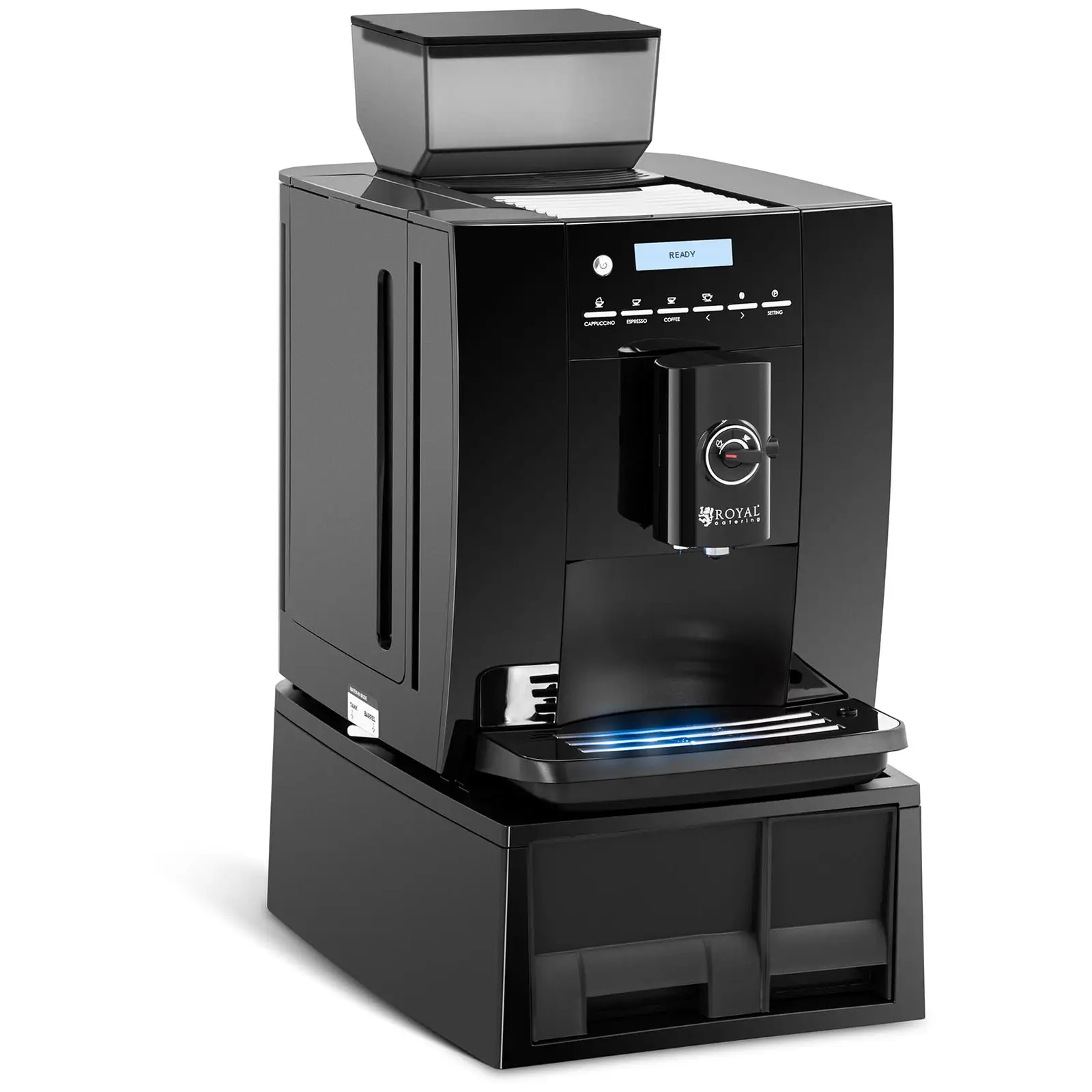
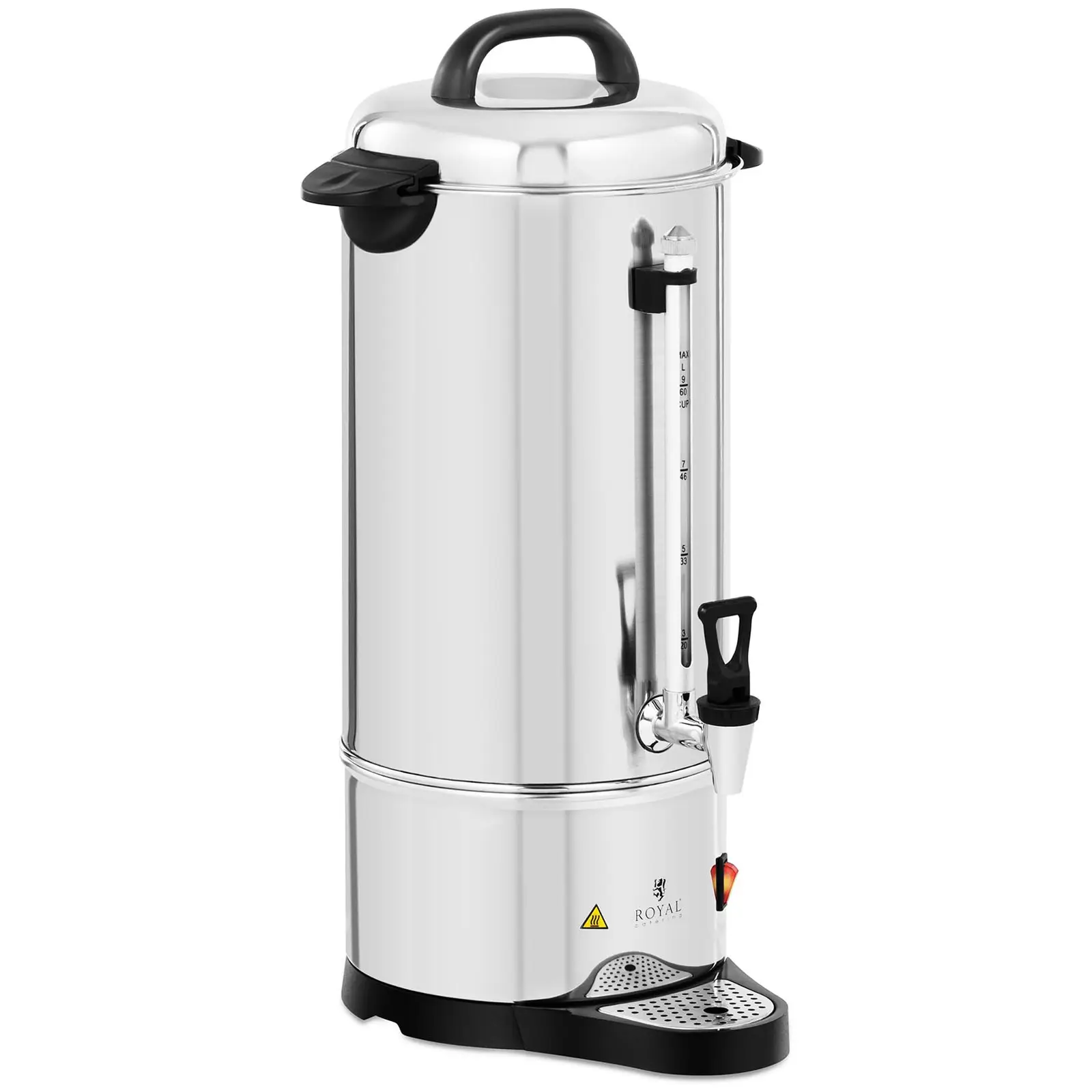
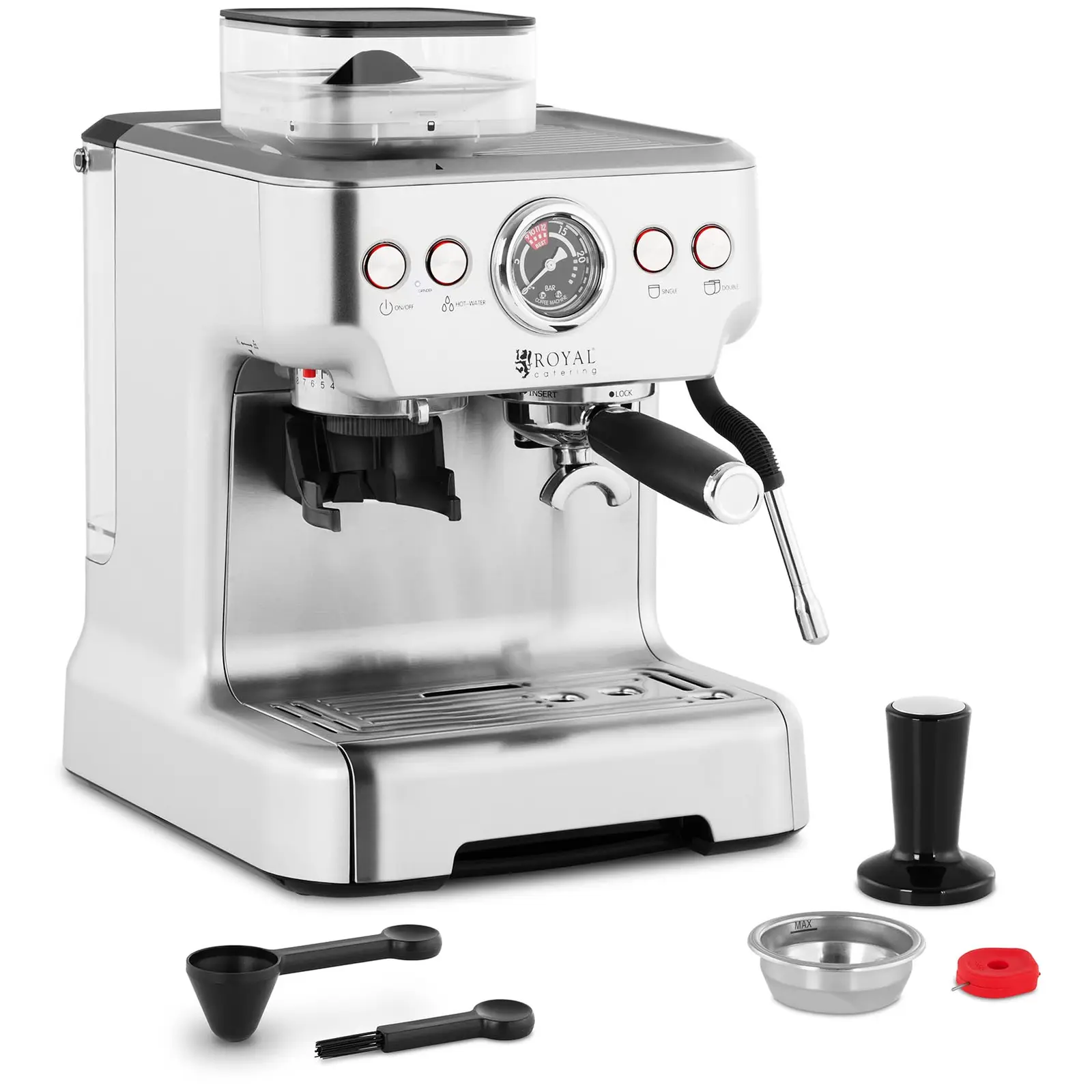
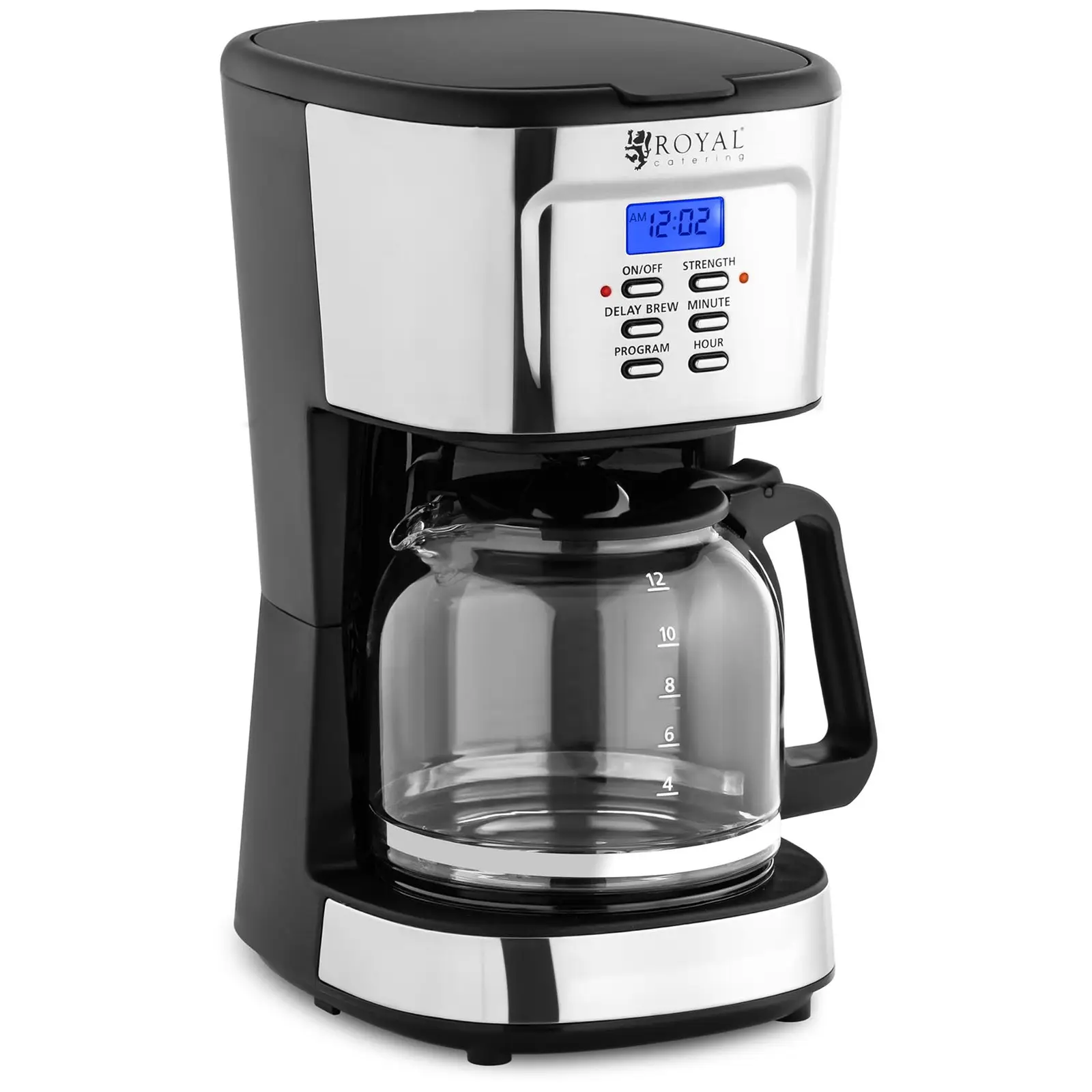
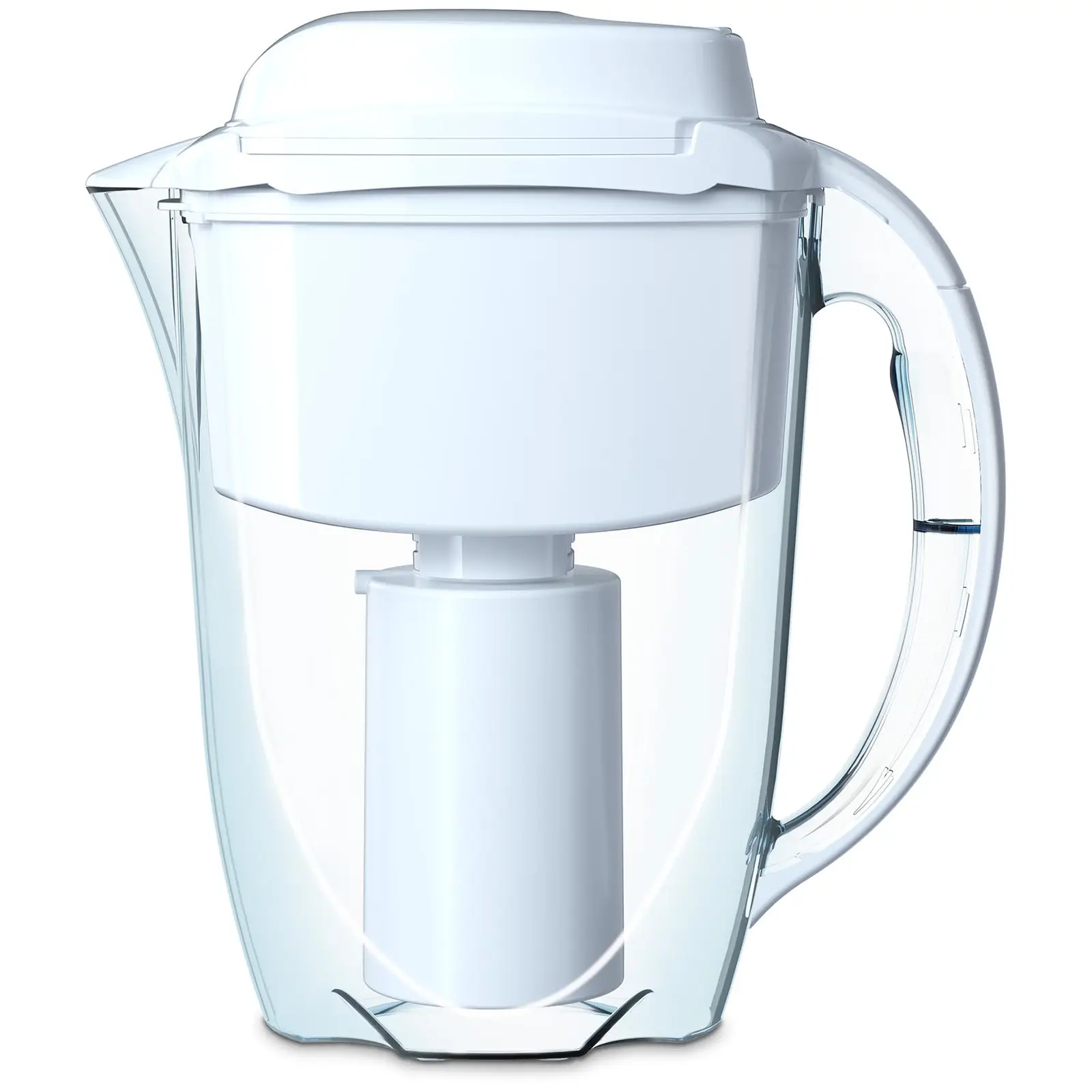
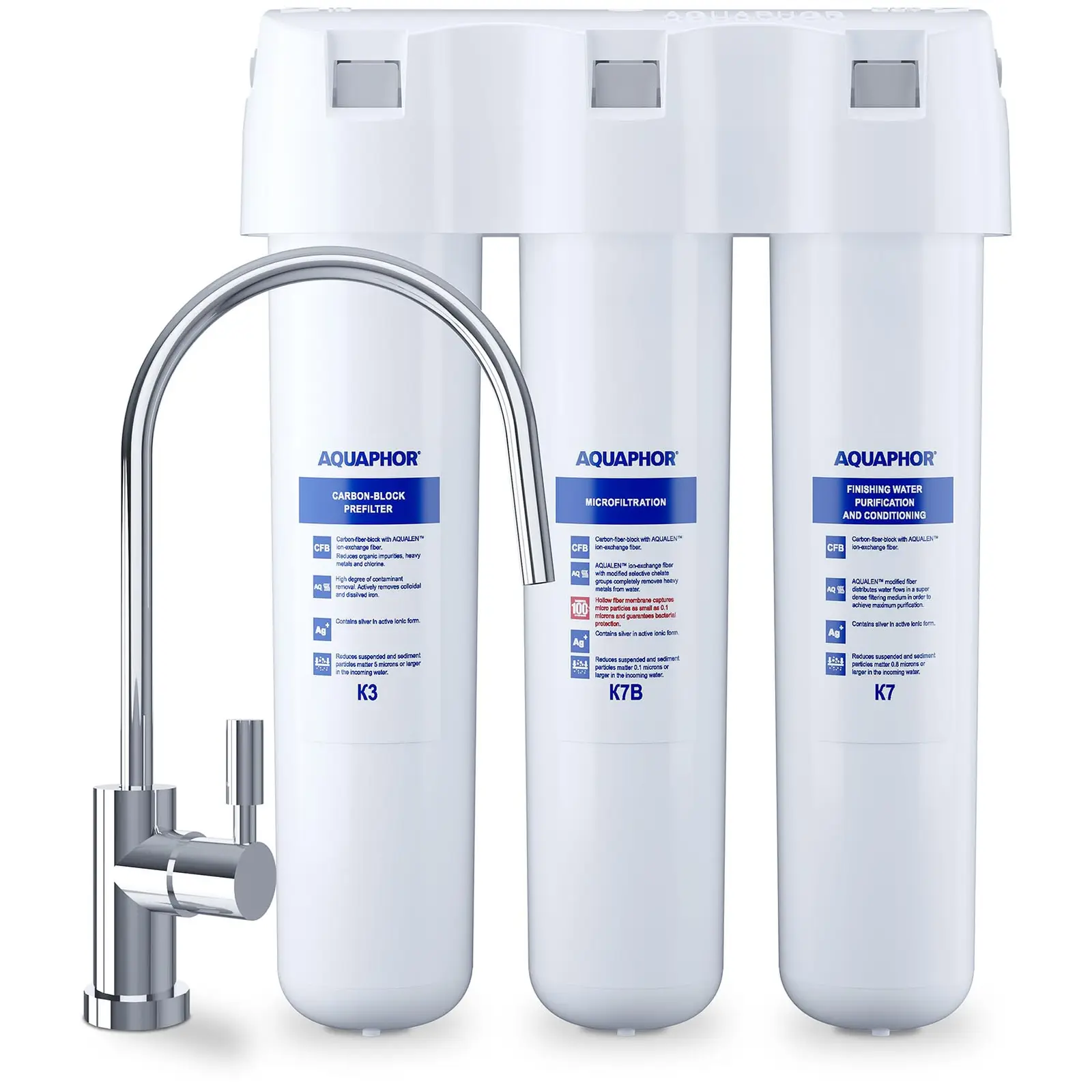
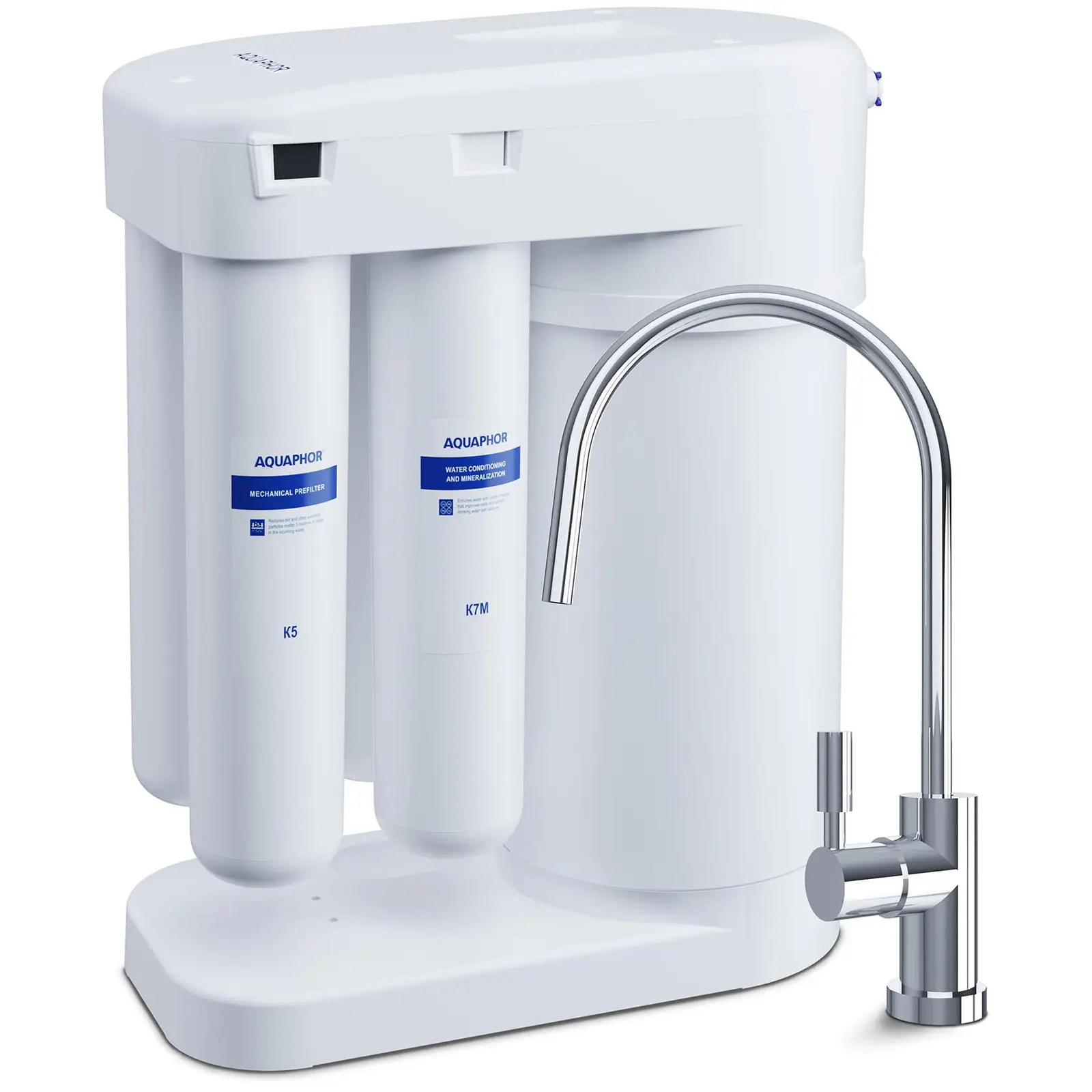
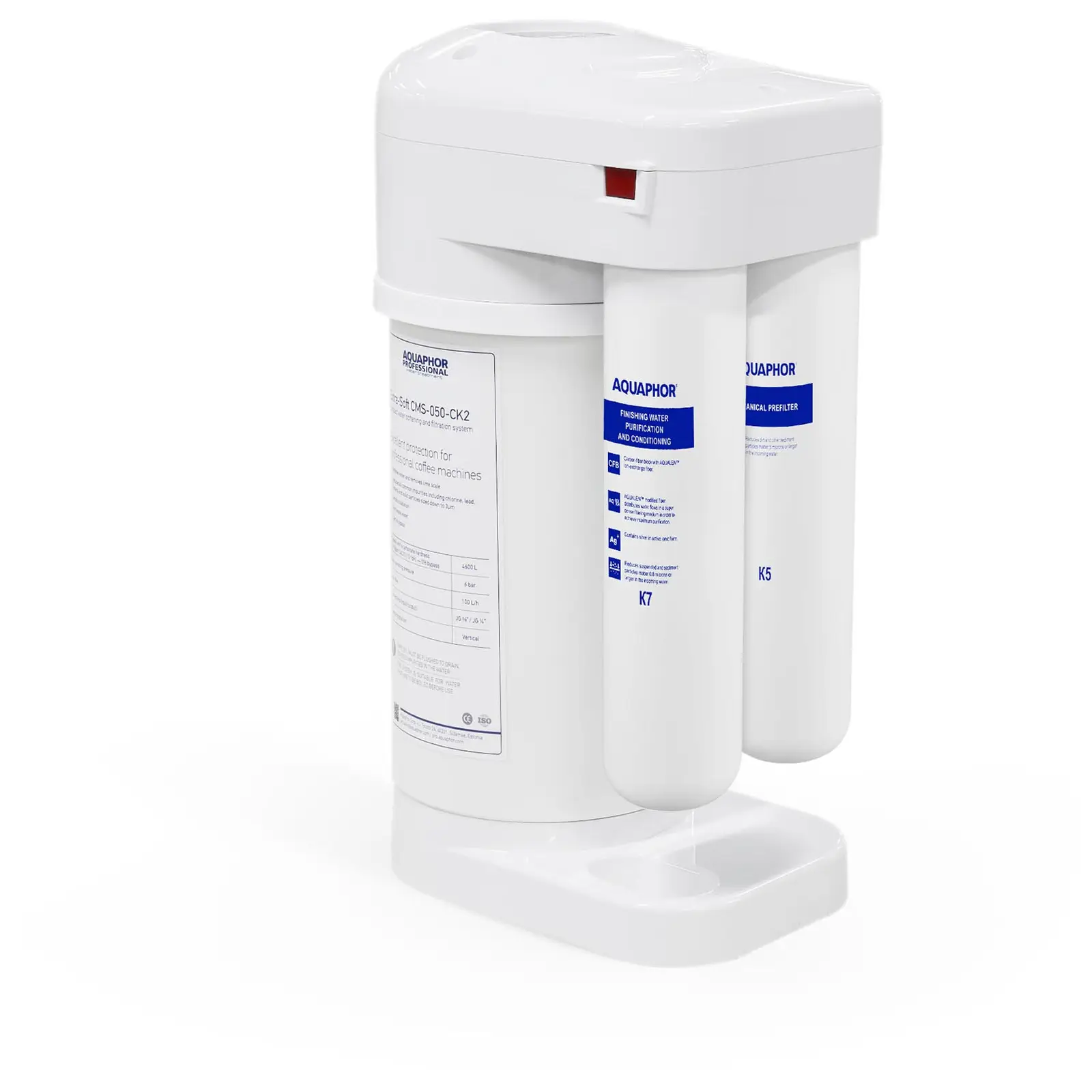





Share